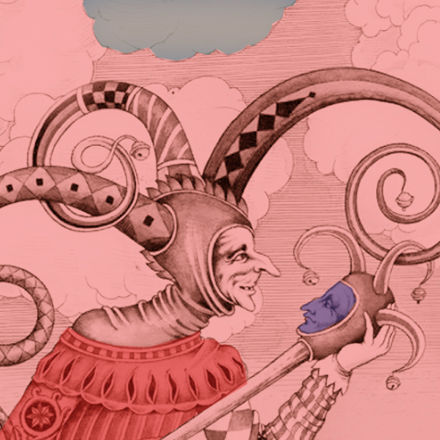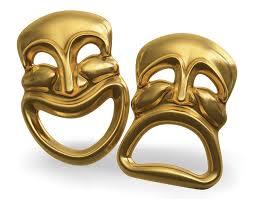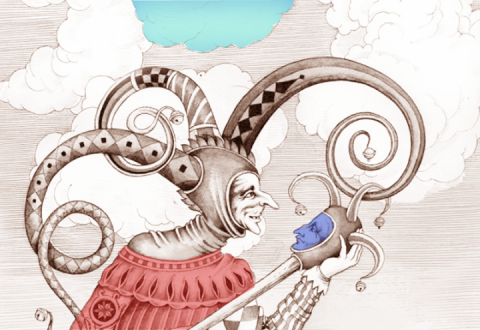
A pesar de que se ha escrito mucho sobre el tema, sigue existiendo una gran confusión sobre qué es el humor. Los más célebres teóricos y los profesionales que viven de él se muestran incapaces de explicarlo. Las definiciones propuestas son múltiples, muy diversas y a veces contradictorias. Con razón el escritor francés Pierre Daninos lo llegó a calificar como “el calvario de los definidores”.
Por esta confusión sobre lo que es el humor, muchos los desprecian como algo pequeñito –casi insignificante– y puramente frívolo, y le niegan, por supuesto, cualquier ápice de seriedad. Pero hay otros que desde la defensa del humor –muchos de ellos grandes humoristas– también se resisten a otorgarle visos de seriedad. El humor no tiene nada de serio, vienen a decir; al revés, la seriedad es antihumorística.
Uno de los últimos en repetirlo es el filósofo español Fernando Savater, quien en una reciente entrevista publicada en el diario español Faro de Vigo afirma: “Yo siempre he dicho que don Miguel de Unamuno tenía el sentimiento trágico de la vida y yo tengo el sentimiento cómico de la vida. No voy a decir que todas las personas serias sean asnos, pero tengo que reconocer que todos los asnos que he conocido eran serios”.
Un humorista como Pgarcía, pseudónimo de José Martínez-Calín, refundador y director de la Academia Española de Humor y de la Biblioteca de La Golondriz –donde intentó recuperar el espíritu de La Codorniz, la mítica revista de humor en la que colaboró durante quince años antes de fundar otra fundamental en la Transición, El Cocodrilo Leopoldo–, define el humorismo como “el estilo que, mediante la trivialización de la seriedad manipuladora, busca la libertad espiritual y la plenitud del receptor a través de la sonrisa”. Una definición de la que ya se desprende la seriedad del humor, en tanto que nos ayuda a alcanzar la libertad espiritual y la plenitud, así como la existencia de otra seriedad falsa, “manipuladora”, que –esa sí– es antihumorística.
El humor es serio, pero no solemne
Porque ¿qué es seriedad? No hay que confundir seriedad con solemnidad, porque si el humor es serio, no es solemne. El humor es, precisamente, antisolemne. Como dice el naturalista y escritor español Joaquín Araújo, “el humor es como la capa de ozono: nos protege de esa fracción asesina de nosotros mismos que es la excesiva solemnidad en el análisis de la realidad”. La solemnidad es, casi siempre, falsa seriedad, la “seriedad manipuladora” de la que habla Pgarcía. Lo solemne es lo ceremonioso, lo aparatoso, lo pomposo –lo superfluo, en fin–, mientras que lo serio es lo necesario, lo imprescindible, lo esencial.
Sin embargo, a veces confundimos ambos conceptos. Incluso un humorista como el español Juan Carlos Ortega, que ha desarrollado su carrera principalmente en la radio y la televisión –en 2016 ganó un Premio Ondas–, no está libre de hacerlo. Así, en un debate de TVE emitido en abril de 2011 decía: “El humor no es serio, en tanto que el humor es una lucha contra la seriedad, contra la pomposidad, contra la trascendencia y los ceños arrugados. El humor es valioso, importante, útil, pero jamás serio. Muchas veces se dice que el humor es serio, y se hace de manera bienintencionada, para exaltar a los que nos dedicamos a esta profesión. Pero tras el elogio se esconde un arma venenosa. Llamándonos serios, los auténticos ‘serios’ consiguen inutilizarnos, llevarnos a su terreno, convertirnos en uno de los suyos, y de este modo quedan inmunes, porque los serios se apoyan entre ellos. Tal vez todo surgió como una reacción a una época en la que los humoristas estábamos poco prestigiados, pero hoy ya no es así. Ya estamos respetados. No hace falta que nos llamen serios”. Interesante reflexión la de Ortega, pero de lo que está a hablar –en mi opinión– no es de la seriedad, sino de la solemnidad.
Por qué el humor es serio
¿Por qué el humor es una cosa tan seria? También aquí podemos confundirnos. El humor no es serio porque el humorista, aunque persiga hacer reír o sonreír, haga su trabajo con todo el rigor del mundo, con toda la profesionalidad, con toda la “seriedad” del mundo, que es a lo que parece referirse Ortega cuando afirma que a veces se dice que el humor es serio “para exaltar” a los humoristas. Eso se da por descontado, pero no es la verdadera razón de lo que estamos hablando.
El humor tampoco es serio porque necesite ser envuelto en seriedad para conseguir su objetivo de sorprender, de desconcertar. No lo es porque haya humoristas que suelan decir las cosas más disparatadas o divertidas con una cara absolutamente seria. Es la ironía la que es esa “broma envuelta en seriedad”, como decía Schopenhauer, pero el humor es “seriedad envuelta en broma”, en opinión de Fernández de la Vega, que le da la vuelta al argumento de su colega alemán.
El humor es una cosa muy seria no por su envoltorio, sino por su contenido, por su naturaleza, por sus consecuencias. El humor tiene dos características esenciales que lo hacen imbatible en este sentido. La primera, la mirada divergente. La segunda, su empatía contagiosa, que nos permite superar la adversidad con la sonrisa comprensiva o evitar la desesperación con la sonrisa ácida. Por eso, un humorista gráfico como el gallego Xaquín Marín dice que el humor “nos salva de la desesperación”.
El humorista mira las cosas con una mirada divergente, como las miraría un pintor cubista. Así es capaz de descubrir que todo es relativo, porque la realidad es poliédrica, tiene muchas caras. Esta cualidad nos permite no solo ver la realidad de una manera nueva e insospechada –la grandeza de lo pequeño y la pequeñez de lo grande–, sino también ver por primera vez la realidad entera, completa: recuperar esas parcelas que el sistema dogmático –las pautas de convivencia, las normas consuetudinarias, el conformismo social– nos hace perder a cambio de darnos la impresión de seguridad.
Al descubrir que la realidad es poliédrica, el humorista –y nosotros con él– se da cuenta de que la realidad no tiene solo esa cara tan terrible, que tanto miedo nos da, sino también otras menos amenazantes y peligrosas, algunas incluso francamente absurdas o grotescas, definitivamente divertidas.
El humor posee el poder alquímico de transformar el tedio o el dolor en sonrisa y hasta en risa. Una dificultad frente a la que tenemos la capacidad de sonreír queda convertida en algo más asumible. Reconocemos que la vida es a veces terrible, pero que podemos tomarle el pelo y divertirnos. El humor nos ayuda a darle sentido a acontecimientos o hechos que, de otra manera, nos aplastarían; a unir las piezas del rompecabezas que es la vida, para poder comprender lo incomprensible.
En este sentido, el humor es siempre una defensa, “la defensa de la ofensa de vivir”, como dice el escritor italiano Césare Pavese de la escritura, porque nos permite seguir adelante e incluso divertirnos a pesar de los golpes de la vida. El humor no puede cambiar la realidad, pero nos ayuda a sobrellevarla, a hacerla más llevadera, a convivir con ella, no solo a coexistir.
Un antídoto contra el dolor
¿De dónde nace el humor: del dolor, como decía Mark Twain, o de la alegría? De las dos. Es indudable que hay un humor que nace de la alegría o, dicho de otra manera, que la alegría tiene en el humor –en el humor más expansivo– un escudero. Pero hay otro humor –el de la sonrisa ácida, el de la burla de las adversidades y de las propias flaquezas, el que hace de tripas corazón– que nace directamente del dolor, pero indirectamente también de la alegría: de la alegría de saber que, aunque la vida sea terrible, podemos tomarle el pelo y divertirnos. Es un humor que nace como un antídoto del dolor, como un anticuerpo. Pero, ojo, no como un opiáceo que duerme el sentimiento, que anestesia el corazón para que no sintamos la realidad, sino más bien como un ácido lisérgico que nos permite acceder a nuevas dimensiones de ella y descubrir que no es tan fiera como parece. El humor no tiene una finalidad anestésica, sino concienciadora: no nos duerme, sino que nos ayuda a alcanzar un estado de conciencia más elevado.
Por eso el filósofo gallego Celestino Fernández de la Vega pudo decir que “el humor es el esfuerzo más inteligente del hombre por liberarse de su tediosa condición” y “una buena terapéutica del fracaso”. El primero y mejor paciente del humorista puede y debe ser él mismo. El verdadero humorista se ríe más de sí mismo que de los demás, hace de su propio dolor la materia de su risa. La comicidad se hace sobre algo y la sátira contra algo, pero el humor genuino no necesita la existencia de un tercero, porque muy bien puede ser el resultado del análisis de la propia intimidad.
Entendido así, el humor parece reformista, frente a la revolución de la sátira –a la que aquí distingo expresamente del humor–, dispuesta siempre a agredir. Pero es más revolucionario de lo que podemos creer. Tal vez, el humorista pueda decir que se revoluciona todos los días, como decía de sí mismo el escritor francés Louis-Ferdinand Céline. No revoluciona el mundo, pero sí se revoluciona él, porque ve la realidad siempre desde un punto de vista nuevo, y nos revoluciona a todos, porque nos obliga a hacer otro tanto. El humor, como algunas otras cosas –la poesía, la música…– no puede cambiar el mundo, pero sí puede cambiarnos a nosotros, cambiar nuestra actitud hacia el mundo. Y cuando nosotros cambiamos, también cambia el mundo.



Is the humor serious?
By Félix Caballero Wangüemert
Despite the extensive writing on the subject, there remains great confusion about what humor is. The most renowned theorists and professionals who make a living from it seem unable to explain it. The proposed definitions are numerous, highly varied, and sometimes contradictory. Justifiably, the French writer Pierre Daninos called it "the ordeal of definers."
Due to this confusion about what humor is, many people dismiss it as something small—almost insignificant—and purely frivolous, denying it, of course, any trace of seriousness. However, there are others who, even from a perspective of defending humor—many of them great humorists—resist attributing it any semblance of seriousness. Humor has nothing serious about it, they say; on the contrary, seriousness is anti-humorous.
One of the latest to repeat this is the Spanish philosopher Fernando Savater, who in a recent interview published in the Spanish newspaper Faro de Vigo states: "I have always said that Don Miguel de Unamuno had the tragic sense of life, and I have the comic sense of life. I won’t say that all serious people are donkeys, but I must admit that all the donkeys I have known were serious."
A humorist like Pgarcía, pseudonym of José Martínez-Calín, refounder and director of the Spanish Academy of Humor and of the La Golondriz Library—where he tried to revive the spirit of La Codorniz, the legendary humor magazine he contributed to for fifteen years before founding another key one during the Transition, *El Cocodrilo Leopoldo*—defines humorism as "the style that, through the trivialization of manipulative seriousness, seeks the spiritual freedom and fulfillment of the recipient through a smile." A definition that already suggests the seriousness of humor, as it helps us achieve spiritual freedom and fulfillment, as well as the existence of another false, "manipulative" seriousness, which—indeed—is anti-humorous.
Humor is serious, but not solemn
Because what is seriousness? We must not confuse seriousness with solemnity, because if humor is serious, it is not solemn. Humor is, precisely, anti-solemn. As the Spanish naturalist and writer Joaquín Araújo says, "humor is like the ozone layer: it protects us from that deadly part of ourselves that is excessive solemnity in analyzing reality." Solemnity is, almost always, false seriousness, the "manipulative seriousness" that Pgarcía speaks of. The solemn is the ceremonious, the grandiose, the pompous—the superfluous, in short—while the serious is what is necessary, essential, indispensable.
However, sometimes we confuse these two concepts. Even a humorist like the Spaniard Juan Carlos Ortega, who has developed his career mainly on radio and television—in 2016, he won an Ondas Award—is not immune to doing so. Thus, in a TVE debate broadcast in April 2011, he said: "Humor is not serious, since humor is a fight against seriousness, against pomposity, against transcendence and furrowed brows. Humor is valuable, important, useful, but never serious. It is often said that humor is serious, and it is done with good intentions, to elevate those of us who dedicate ourselves to this profession. But behind the praise lies a poisonous weapon. By calling us serious, the truly 'serious' manage to render us useless, bring us to their territory, turn us into one of their own, and in this way remain immune, because the serious ones support each other. Maybe it all started as a reaction to a time when humorists were not held in high regard, but today that is no longer the case. We are already respected. There is no need for them to call us serious." An interesting reflection from Ortega, but what he is talking about—in my opinion—is not seriousness, but solemnity.
Why humor is serious
Why is humor such a serious thing? Here, too, we can get confused. Humor is not serious because the humorist, even though aiming to make people laugh or smile, does their job with all the rigor, professionalism, and "seriousness" in the world, which is what Ortega seems to refer to when he says that humor is sometimes called serious "to elevate" humorists. That is taken for granted, but it is not the true reason for what we are discussing.
Humor is also not serious because it needs to be wrapped in seriousness to achieve its goal of surprising or bewildering. It is not because there are humorists who tend to say the most outrageous or amusing things with an absolutely straight face. Irony is the "joke wrapped in seriousness," as Schopenhauer said, but humor is "seriousness wrapped in a joke," according to Fernández de la Vega, who turns his German colleague's argument around. }
Humor is a very serious matter, not because of its wrapping, but because of its content, its nature, and its consequences. Humor has two essential characteristics that make it unbeatable in this sense. The first is the divergent perspective. The second is its contagious empathy, which allows us to overcome adversity with a sympathetic smile or avoid despair with a sardonic one. That is why a cartoonist like the Galician Xaquín Marín says that humor "saves us from despair."
The humorist looks at things with a divergent perspective, as a cubist painter would. In this way, they are able to discover that everything is relative because reality is multifaceted; it has many sides. This quality allows us not only to see reality in a new and unexpected way—the greatness of the small and the smallness of the great—but also to see reality as a whole, complete: to recover those parts that the dogmatic system—rules of coexistence, customary norms, social conformity—makes us lose in exchange for giving us the illusion of security.
By discovering that reality is multifaceted, the humorist—and we along with them—realizes that reality doesn't have just that terrible side that scares us so much, but also other sides that are less threatening and dangerous, some even frankly absurd or grotesque, and ultimately amusing. Humor has the alchemical power to transform tedium or pain into a smile and even laughter. A difficulty that we have the ability to smile at becomes something more manageable. We acknowledge that life is sometimes terrible, but we can mock it and have fun.
Humor helps us make sense of events or facts that would otherwise crush us; it helps us piece together the puzzle of life to understand the incomprehensible. In this sense, humor is always a defense, "the defense against the offense of living," as the Italian writer Cesare Pavese says of writing, because it allows us to keep going and even have fun despite life's blows. Humor cannot change reality, but it helps us cope with it, make it more bearable, live with it, not just coexist.
An Antidote Against Pain
Where does humor come from: from pain, as Mark Twain said, or from joy? From both. Undoubtedly, there is humor that comes from joy, or in other words, joy finds in humor—in its most expansive form—a companion. But there is another kind of humor—the one of the sardonic smile, the mockery of adversities and one’s own weaknesses, the one that makes a brave face—that is born directly from pain, but indirectly also from joy: the joy of knowing that, even though life is terrible, we can make fun of it and enjoy ourselves. It is a humor that arises as an antidote to pain, like an antibody. But beware, it is not like an opiate that dulls the feeling, that anesthetizes the heart so that we do not feel reality, but rather like a lysergic acid that allows us to access new dimensions of it and discover that it is not as fierce as it seems. Humor does not have an anesthetic purpose but rather an enlightening one: it does not put us to sleep but helps us reach a higher state of consciousness.
That is why the Galician philosopher Celestino Fernández de la Vega could say that "humor is man's most intelligent effort to free himself from his tedious condition" and "a good therapy for failure." The first and best patient of the humorist can and should be himself. The true humorist laughs more at himself than at others, making his own pain the source of his laughter. Comedy is made about something, and satire is made against something, but genuine humor does not need the existence of a third party, as it can very well be the result of analyzing one's own inner self.
Understood in this way, humor seems reformist, in contrast to the revolution of satire—which I explicitly distinguish here from humor—always ready to attack. But it is more revolutionary than we might think. Perhaps the humorist could say that he revolts every day, as the French writer Louis-Ferdinand Céline said of himself. Humor does not revolutionize the world, but it does revolutionize the humorist, as he always sees reality from a new perspective, and it revolutionizes all of us, as it forces us to do the same. Humor, like some other things—poetry, music...—cannot change the world, but it can change us, change our attitude toward the world. And when we change, the world changes too.
(This text has been translated into English by Chat GPT)
